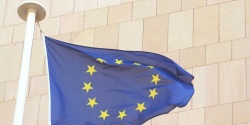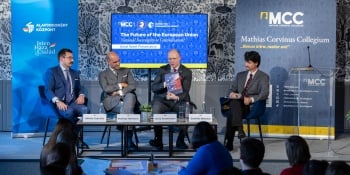Published: 20.01.2023

· The European Parliament has adopted the resolution "Report on human rights and democracy in the world and the European Union's policy in this regard - Annual Report 2022."
· In an attempt to pursue an ideological agenda, the EP makes mutually exclusive demands in its report.
· In addition to a vote of condemnation of selective abortion (based on gender or disability, among other grounds), it demands that Poland withdraw from the ban on eugenic abortion.
· Despite the EP's previous firm vote against all forms of surrogacy, the current report called for condemning only its commercial nature. Amendments on this issue were rejected.
· The report also touches on religious freedom, understanding it primarily as the freedom to express critical opinions about religion.
The January session of the European Parliament traditionally features debates and reports summarizing the activities of the EU and its representatives in the past year. Hence, on January 17, 2023, MEPs held a discussion on the issue of "human rights and democracy in the world" in the context of the 2022 annual report presented by Isabel Wiseler-Lima. The Luxembourg MEP belongs to the European People's Party (EPP) and is a member of the Subcommittee on Human Rights.
The 2022 report contains both accurate diagnoses of real problems (e.g., the rights of the aged - paragraph 70 of the report) and strongly ideological demands for the realization of "reproductive and sexual health and rights," a term that not only lacks any legal anchoring, but does not even have a uniform definition indicating its scope.
The document strongly condemns the legal changes introduced in recent years in Poland, the US and Hungary that strengthen the protection of life from conception and calls for their withdrawal. At the same time, however, the EP speaks negatively about selective abortion (deprivation of life because of gender, disability or other characteristics). Significantly, while calling for the introduction of legislation banning selective abortion, the EP does not see a contradiction with the demand formulated several points earlier - including Poland's withdrawal from the ban on eugenic abortion.
The report also included a point on surrogacy, or so-called surrogate motherhood. In numerous EP resolutions adopted in past years, there were provisions completely and without exception condemning this procedure - as violating the dignity of both the woman and the child, giving rise to many physical and psychological risks, as well as fulfilling the premises of human trafficking. Meanwhile, the document submitted to the EP limits the condemnation of surrogacy only to cases in which it is a commercial activity. This action can be seen as a slow attempt by the EP to back away from its previous position, especially in the context of the debate on the legal regulation of surrogacy that has been going on internationally for several years. Amendments that were intended to supplement the point relating to surrogacy were rejected.
The document also addresses the issue of religious freedom, but focuses primarily on the dimension of freedom from religion. According to the EP, attacks on individuals who criticize religion under freedom of thought or freedom of artistic creation are a significant problem. However, the report lacked reference to cases of overstepping the boundaries of this freedom, which have become increasingly frequent in recent years and are often characterized by open hatred or take an aggressive form.
A vote on the report was held on January 18. The EP adopted it in the form of a resolution with 438 votes in favor to 75 against (121 abstentions).
"Thanks to the constant monitoring of the work of the EU that we carry out at the Center for International Law, we are able not only to react in real time to the actions taken by the European Commission or the European Parliament, but also to try to influence the shape of the projects submitted to these bodies for work. Our memoranda reach all MEPs and we have often observed their influence on the results of important votes. Constant monitoring also allows us to notice the changes that are taking place in the EP - as in the case of surrogacy, where we see a clear trend away from the until recently firm condemnation expressed by the EP for this procedure." - Anna Kubacka of the Ordo Iuris Center for International Law stresses.

09.04.2025
• On April 8, the Ordo Iuris Institute presented the Polish version of a document with proposals for reforming the European Union, prepared jointly with Hungary’s Mathias Corvinus Collegium (MCC).


The Court of Appeals in Lublin, Poland, has upheld the verdict of the Regional Court in Radom, sentencing a gynecologist to one year of imprisonment, suspended for three years. The doctor must also pay PLN 6,000 to the State Treasury in legal costs.

The Ordo Iuris Institute has prepared a guide for hospitals and doctors on how to respond to the Guidelines issued by the Minister of Health and the Attorney General regarding the performance of abortions. According to these Guidelines, the health premise that permits abortion can encompass any aspect of health—both physical and mental—including any health ailment.